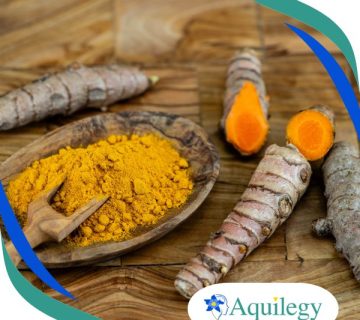Turmeric, known for its vibrant yellow hue and culinary versatility, has significant implications for overall brain health. The herb’s active compound, curcumin, is associated with various cognitive advantages.
Research highlights the strong anti-inflammatory effects of curcumin, which may play a role in diminishing cognitive decline observed in aging and neurodegenerative diseases.
- Curcumin facilitates enhancements in neuroplasticity, which supports the brain’s capacity to adapt and establish new neural connections.
- Evidence suggests curcumin effectively diminishes oxidative stress, a contributor to cognitive dysfunction.
Turmeric aids in the production of DHA (docosahexaenoic acid), an omega-3 fatty acid indispensable for optimal brain function. DHA is known to encourage synaptic plasticity, which is critical for memory and learning processes.
- Antioxidants present in turmeric work to neutralize free radicals, which can harm brain cells.
- Curcumin’s effects on neurotransmitters, such as serotonin and dopamine, are linked to elevated mood and mental wellness.
Integrating turmeric into your daily regimen can offer a natural method for enhancing cognitive capabilities. Regularly consuming it may contribute to minimizing episodes of brain fog and boosting overall focus, marking it as a valuable supplement for anyone looking to optimize their brain health.
Boosting Cognitive Function With Turmeric
Turmeric has garnered attention for its potential in enhancing cognitive capabilities through its bioactive compound, curcumin. This vibrant spice, commonly found in curries, possesses properties that may reduce neuroinflammation, positively influencing cognitive clarity and mental performance. Regular incorporation into one’s diet can aid in improving memory and mental agility. Effective dosages of curcumin for cognitive enhancement typically range from 500 mg to 2000 mg daily.
Bioavailability significantly affects absorption rates and overall effectiveness, making it essential to combine turmeric with black pepper, which can increase curcumin’s absorption, thereby enhancing its benefits for brain health. By integrating this spice into daily meals, individuals can promote sustained cognitive vitality. Exploring various methods for including turmeric can help maximize its effects. Incorporating turmeric can be achieved through a variety of recipes such as smoothies, curries, or herbal teas. Regular consumption, particularly when combined with a balanced diet, may support overall brain function. For enhanced cognitive support, pairing turmeric with other brain-boosting nutrients like omega-3 fatty acids and B vitamins can further contribute to cognitive health.
Exploring Nutritional Components For Brain Health
Maintaining optimal cognitive function relies on a variety of nutrients. Research demonstrates that turmeric, particularly its active compound curcumin, significantly influences cognitive performance. Curcumin possesses anti-inflammatory properties, which may aid in alleviating brain fog often linked with cognitive decline. Omega-3 fatty acids, prevalent in fatty fish and walnuts, are known to support neuronal integrity by minimizing inflammation.
- Omega-3 Fatty Acids: Key components for maintaining brain structure and function.
- Vitamins B and D: Associated with regulating mood and facilitating neurotransmitter production.
- Antioxidants: Foods like berries and leafy greens help safeguard neurons against oxidative stress.
Incorporating these nutrients into daily meals can enhance overall cognitive performance. For instance, adding flaxseeds to breakfast oatmeal provides a rich source of omega-3s. Snacking on nuts or berries ensures a supply of antioxidants vital for mental clarity and energy. Fortified foods also contribute essential vitamins B and D, important for sustaining cognitive function.
Cognitive Function and Nutrition
- Studies show that curcumin can enhance memory and attention in older adults.
- Research indicates that omega-3 fatty acids can reduce the risk of Alzheimer’s disease.
- Vitamins B and D have been linked to improved mood and lower rates of depression.
- Antioxidants found in berries are associated with better cognitive performance in aging populations.
Antioxidants And Brain Protection
Maintaining optimal cognitive function involves several factors, including the intake of protective nutrients known for their brain-supporting benefits. Antioxidants play a significant role by reducing oxidative stress, which can contribute to cellular damage and cognitive decline. Research has shown that specific antioxidants can effectively cross the blood-brain barrier, thus protecting sensitive brain tissue.
Turmeric’s active component, curcumin, is recognized for its potent antioxidant properties.
- Turmeric’s Role: Curcumin assists in reducing oxidative stress and alleviating brain fog.
- Research Evidence: Clinical studies affirm the positive effects of antioxidants, such as vitamins C and E, on cognitive health.
- Dietary Sources: Berries and dark leafy greens provide abundant antioxidants, benefiting brain function.
Incorporating antioxidants into your daily routine may assist in delaying age-related cognitive decline. Aquilegy’s formula is designed to enhance memory and mood while providing overall brain health support through its rich antioxidant and neuroprotective ingredients.
Products like Aquilegy incorporate turmeric within a scientifically supported formula tailored for brain health. Combining turmeric with healthy fats—such as avocado or olive oil—can further enhance its beneficial effects on cognitive function, providing an easy and enjoyable way to bolster brain health.







